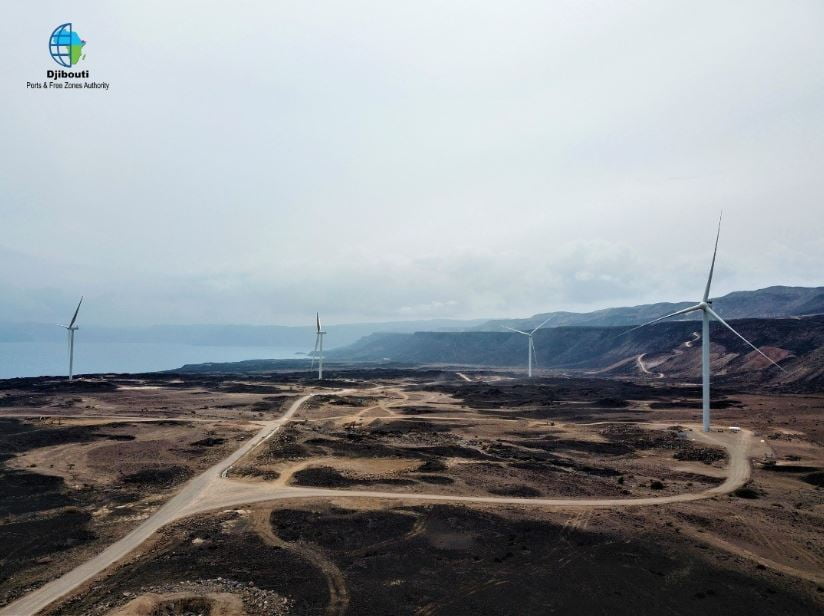Next week Djibouti will inaugurate the Red Sea Power wind farm, near Lake Goubet, which will provide 60MW of clean energy, boosting overall capacity by 50%. It will also avert 252,500 tonnes of CO2 emissions annually, equivalent to the pollution from over 55,000 buses.
President Ismail Omar Guelleh will carry out the landmark inauguration of Djibouti’s first-ever wind farm on September 10, advancing his stated ambition to make the nation of 1.1 million the first in Africa to rely entirely on renewable sources for electricity by 2035. Energy security and independence, import substitution, industrialization, job creation and economic stability are among the benefits to be delivered in line with UN sustainable development goals (SDGs).
An additional 45MW of renewable energy is already planned by the consortium of investors behind Red Sea Power, namely, infrastructure solutions provider Africa Finance Corp. (AFC) as lead developer; the Dutch entrepreneurial development bank FMO; blended finance fund manager Climate Fund Managers (CFM); and Great Horn Investment Holding (GHIH), an investment firm owned by a unit of the Djibouti Ports & Free Zones Authority and Djibouti Sovereign Fund.
Until now, Djibouti has been entirely reliant on power generated from imported fossil fuels, as well as hydrogen generated power imported from neighboring Ethiopia. Less than half of the 123MW of domestic installed capacity is operational due to outdated diesel plants. Critically for the East African nation, the new clean energy will spur industrialization, job creation, and economic stability as Djibouti seeks to take advantage of its strategic location as a global transshipment hub.
With its extensive coastline and dedicated port facilities positioned strategically along the Red Sea and the Gulf of Aden, Djibouti has a central role to play in the global energy market. The country has enough wind, solar and geothermal resources to triple existing capacity to at least 300MW. It also has one of the world’s highest concentrations of foreign military bases due to its location at the entrance to the Bab el-Mandab strait, the passageway for 30% of global trade. Djibouti’s new wind farm provides an opportunity for these bases and other enterprises currently outside the grid to decarbonize and replace their mostly diesel-generated power with clean energy.
Leveraging its seaports to diversify the economy, Djibouti set out to build an industrial zone in 2017, sparking preliminary discussions on boosting energy capacity. The consortium for the wind farm was formed in 2018 and subsequently provided all-equity construction bridge financing via AFC, FMO, CFM’s Climate Investor One fund, and GHIH, which propelled the project to achieve financial close in a record 22 months. Construction kicked off in January 2020 and continued at pace despite the global supply challenges caused by Covid-era lockdowns.
Today, the wind farm spans 387 hectares, equivalent to over 700 football pitches. The site’s 17 Siemens turbines each produce 3.4 MW, served by a robust 220 megavolt amperes (MVA) substation and is connected by a 5km overhead transmission line to the local grid operator and warehousing.
The electricity generated is to be sold under a long-term power purchase agreement to Electricité de Djibouti (EDD), the national state-owned utility. Using the project as a template for future IPPs, the Government of Djibouti is already working on several other plants for additional geothermal and solar capacity.
For more information, click here to read the recent AFC press release.

